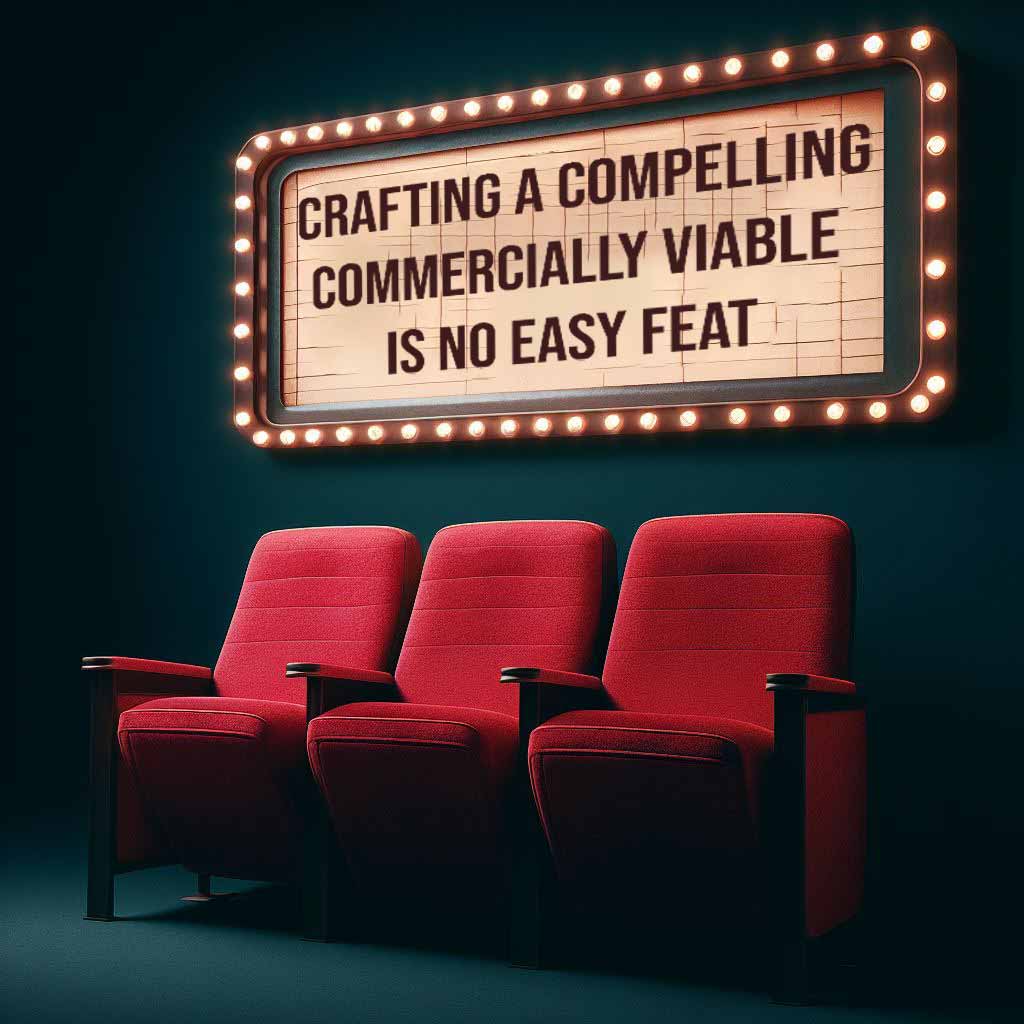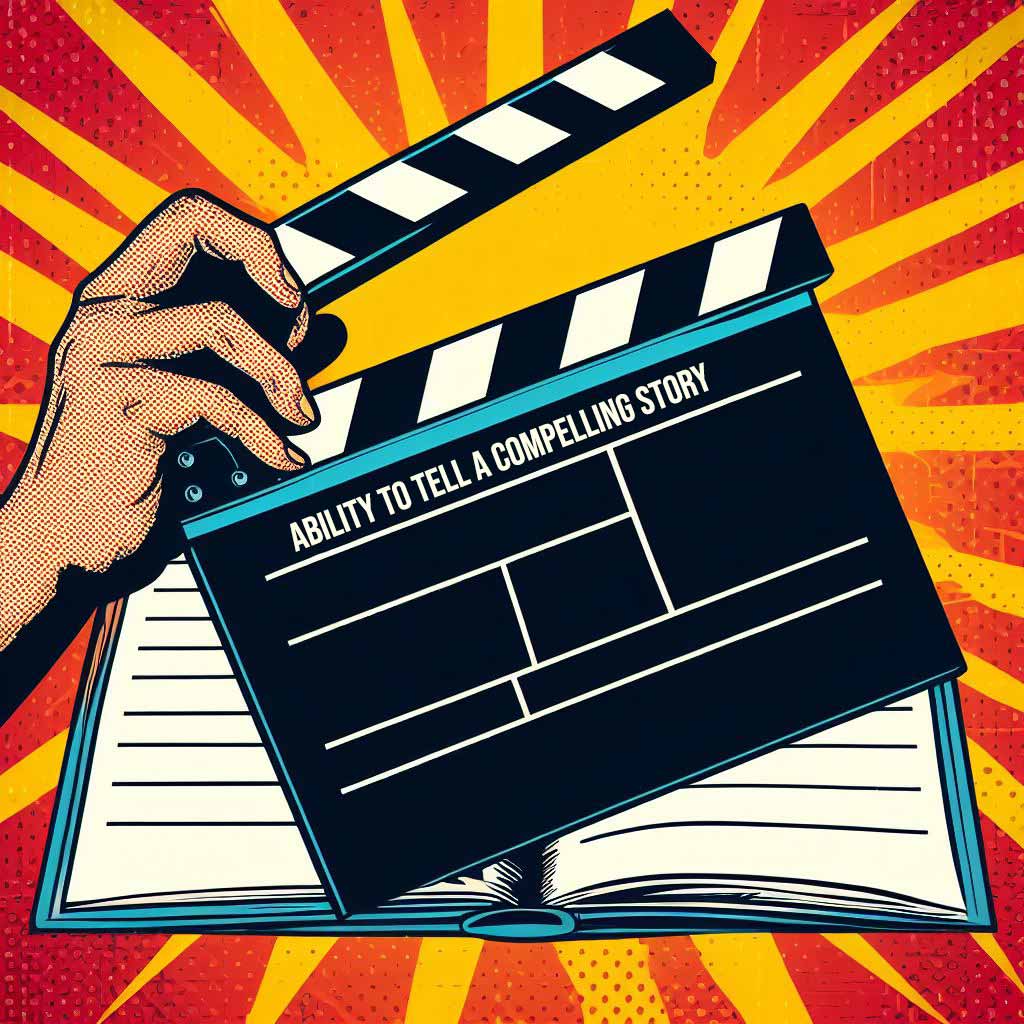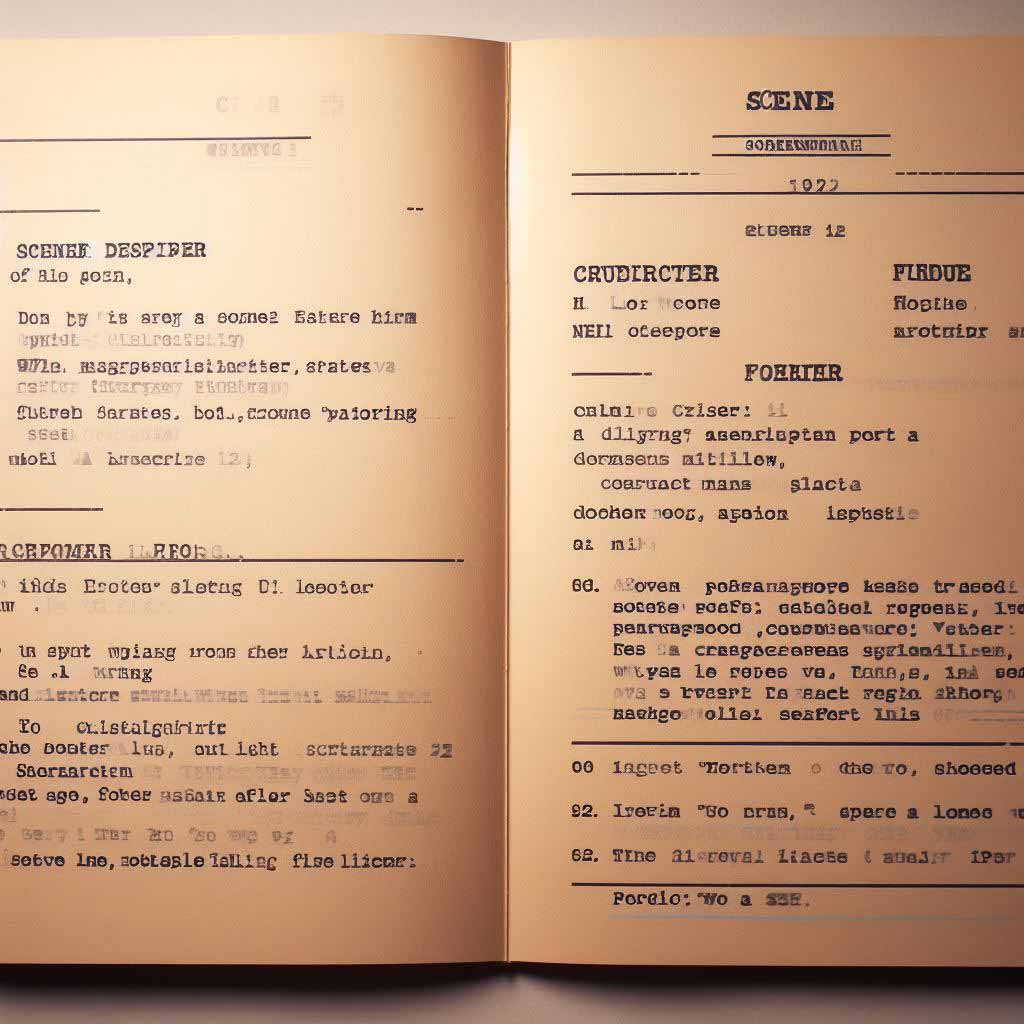Crafting a compelling, commercially viable screenplay is no easy feat. With the film industry more competitive than ever, truly talented screenwriters need to demonstrate a diverse set of skills to make it in Hollywood.

So what does it really take to become a successful, in-demand screenwriter in today’s landscape? Here we will look at the 7 most important qualities that set great screenwriters apart from the pack.
-
Ability to Tell a Compelling Story
First and foremost, talented screenwriters are master storytellers. They can craft narratives that resonate with a wide audience and hold attention from the exhilarating opening scene to the satisfying conclusion.
Great screenwriters understand the fundamentals of dramatic structure inside and out. They know how to organize a story into three acts, building narrative momentum scene by scene.
Their stories feature sympathetic protagonists on difficult yet engaging journeys, with escalating conflicts and high stakes.

But more than just structuring a plot, exceptional writers develop stories with depth. They create complex, multidimensional characters who grow and change over time.
Their narratives tackle universal themes that provoke emotion and meaning. And they know how to blend action, drama, and humor into an experience that feels authentic and profoundly human.
Take films like Eternal Sunshine of the Spotless Mind, The Social Network, or Toy Story for example. Their cleverly crafted narratives resonate deeply despite their vastly different subject matter. This emotional connection stems from the writers’ mastery of storytelling.
-
Mastery of Cinematic Elements
Screenwriters also need a firm grasp of cinematic techniques to translate their vision from script to screen effectively. This starts with understanding the fundamental language of film visuals.
Unlike novelists, screenwriters don’t have the luxury of internal monologues or drawn-out descriptions. Great screenwriters write scenes with motion and impact. Their scene descriptions and action lines paint a vivid picture for the reader while retaining a sparing cinematic style.

Exceptional writers also leverage camera angles and transitions to control pacing and perspective. They know precisely when a close-up, low-angle shot, or quick cut will maximize the desired emotional response.
Writers who master cinematic elements like mise-en-scène give directors and cinematographers the perfect blueprint to translate their vision to the screen.
Take acclaimed writers like Aaron Sorkin or Quentin Tarantino. Their signature snappy dialogue is brought even more to life through calculated film techniques woven seamlessly into their scripts.
-
Dialogue Writing Skills
Of course, those snappy lines need to actually captivate audiences as well. Gifted screenwriters have a knack for writing sharp, memorable dialogue.
Great writers craft dialogue that sounds fresh yet believable for each character. Every character has a unique voice and vocabulary that comes through. The dialogue fits seamlessly within the world of the film.

Skilled screenwriters also know when to use dialogue to drive the story forward and when to pare it back for greater impact. They incorporate rising tension, humor, exposition, and subtext within conversations naturally.
Films like Pulp Fiction, The Before Trilogy, and The Social Network exemplify how riveting dialogue intertwined with compelling stories can create cinema magic. Their quotable lines stick with audiences long after the credits roll.
-
Worldbuilding Skills
In today’s superhero and sci-fi-saturated cinematic landscape, the ability to build immersive fictional worlds has become invaluable. Sophisticated worldbuilding allows writers to give their imaginative stories logical cohesion and credibility.
Masterful writers think through the rules, history, geography, and aesthetics of their story worlds in detail. They know which elements they need to explain explicitly through visuals or exposition vs. which details can remain implied.

Gifted writers create worlds that feel expansive yet coherent. Their settings come alive on the page before a single frame gets shot.
Additionally, great writers know how to design story worlds that lend themselves to sequels, spinoffs, and cinematic universes. Franchises like Star Wars, Lord of the Rings, and the MCU thrive thanks to their foundations in robust worldbuilding.
-
Understanding of Screenplay Format
On a more technical level, seasoned screenwriters have scene formatting, layout, and screenplay language down to a science. They could structure a screenplay properly in their sleep.
Expert writers know how to format their scripts clearly and efficiently. Their scene descriptions, transitions, character introductions, action lines, and dialogue are punctuated precisely per industry convention. Writers who master format give their scripts instant professional polish.

These writers also grasp the crucial balance of making their scripts visually engaging without overwriting. They stick to sparse stage directions, while still communicating important emotional and character cues. Following proper screenplay structure allows their stories to unfold logically.
Format mastery gives writers flexibility to focus on storytelling rather than layout. Take screenwriters like Aaron Sorkin who garner praise for their sophisticated style and flair even within conventional script format.
-
Ability to Adapt and Rewrite
Even once a draft is complete, a great writer knows a script is never really finished. Rewriting and refinement are pivotal parts of the process.
Accomplished screenwriters approach feedback constructively. They filter useful critiques from personal tastes or politics. Constructive criticism provides opportunities to view their stories through fresh perspectives.

Talented writers also willingly pare down overwrought dialogue, or excise unnecessary characters or subplots when needed. They are meticulous self-editors, picking through each scene and transition closely. Cutting 10 pages from a 150-page script takes patience and discipline.
The best screenwriters also know when a full rewrite is required if fundamental elements simply aren’t working. Picking apart seams to rework the story, characters or pacing requires perseverance.
But this refinement process elevates good scripts into great ones. Films including Toy Story, Slumdog Millionaire, and Thelma & Louise were radically improved through exhaustive rewriting.
-
Persistence and Resilience
Finally, ambition and talent alone won’t carry screenwriters to success. Dogged persistence in the face of adversity is vital. Rejection and writer’s block come with the territory.
It takes immense discipline and resilience to battle past the inevitable bad days and setbacks. Great writers see nine no’s for every big yes. They pore through dozens of major rewrites before a script is camera-ready. Passion for the craft fuels their stamina.

But rather than dread notes or rewrites, excellent writers see them as opportunities to strengthen their skills. Constructive feedback helps broaden their creative toolbox for the next big project.
Outstanding screenwriters also know when to temporarily shelve a troublesome script and move on to new ideas. A break can provide the distance needed to reapproach the work with fresh eyes.
Persistence, resilience, and professionalism also help talented writers maintain strong relationships across the industry. Success often depends not just on the quality of the screenplay, but having the reputation and connections to get it into the right hands.
Building Your Screenwriting Skills
Great screenwriters are not born but molded through a commitment to the craft. Here are some key ways aspiring writers can start honing their skills:
- Read produced screenplays to study structure, format, dialogue, and style from successful writers. Look for common patterns.
- Take screenwriting courses to grasp fundamentals. In-person or online classes can provide invaluable early feedback.
- Write daily, even starting with short skits or scenes to build momentum.
- Rewrite constantly and be self-critical of your work. Refinement is key.
- Participate in writers’ groups or find a mentor for constructive feedback during early development.
- Learn from rejection and criticism. Any feedback that helps strengthen skills or stories is useful.
- See films analytically through a screenwriter’s lens. Notice what works, what doesn’t, and why.
- Persevere through self-doubt and early roadblocks. The path to success takes time.
By studying the masters, relentlessly honing their craft, and leveraging feedback, aspiring writers can develop the diverse skills needed to break into the industry.
Why Good Screenwriting Matters
In closing, skilled screenwriting serves as the backbone of filmmaking. Powerful stories told through scripts have the potential to connect us, challenge us, and inspire us. The greatest films of the past century all started with words typed meticulously onto pages.
Without Orson Welles’ sharp script, Citizen Kane would not have redefined cinematic storytelling. Had Aaron Sorkin not translated The Social Network’s story to screen so masterfully, it may not have become a contemporary classic.
The colossal impact of Pixar animation may never have happened without screenwriters like Pete Docter bringing their visionary stories to luminous life.
Great films start with great screenplays. The qualities above help distinguish truly exceptional screenwriters that capture our imaginations and catalyze film magic.
Through tireless dedication to their craft, these writers produce stories that resonate for generations. Their well-honed skills make them indispensable architects of cinematic history.
Frequently Asked Questions
What qualities do you need to be a screenwriter?
Storytelling ability, imagination, resilience, skill with dialogue, familiarity with screenplay format, and ability to bring characters to life.
What makes you a great script writer?
Crafting compelling, original stories. Developing multidimensional characters. Writing memorable dialogue. Mastering screenplay format and cinematic elements. Embracing rewriting and feedback. Persistence and passion.
What determines a good screenplay?
An engaging, well-structured story. Multidimensional characters. Sharp, believable dialogue. Visual writing style. Immersive worldbuilding. A satisfying payoff.
What are the three C’s of screenwriting?
Character, conflict, and context.
What is the most important skill of a screenwriter?
The ability to tell a compelling, emotionally resonant story.
What is the difference between a screenwriter and a scriptwriter?
A screenwriter creates original stories and scripts whereas a scriptwriter formats and edits scripts based on instructions.
What are the 3 good qualities of a script?
An original, well-structured story. Multidimensional protagonists and antagonists. Dialogue that fits the characters and world.
What are the 3 pros to script writing?
Storytelling outlet, creative fulfillment, and contribution to collaborative filmmaking.
Can anyone become a screenwriter?
Yes, with a dedication to learning the screenwriting craft, continuous practice, thick skin, and perseverance anyone can develop professional-level screenwriting skills over time. Natural talent helps but is not required.


